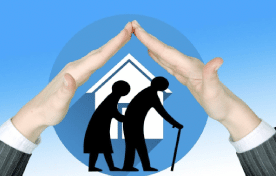Abuse and neglect are often used together and sometimes interchangeably, and it is easy to think they are synonyms. While the difference between the two may not be much in that both address actions or inactions of a person or entity that harm another person, they are different in law.
Often you will hear the abuse and neglect of the term with nursing homes’ treatment of their residents or parents or guardians’ treatment of children.
This post focuses on nursing home abuse and neglect, the difference between the two, and more.
What Is Abuse
The legal definition of abuse is an intentional act meant to cause harm to another person. Abuse can be physical, psychological, and financial.
Physical abuse is violent behavior directed towards another person with the intent to harm them. Emotional or psychological abuse involves causing emotional distress through harassment, intimidation, coercion, or isolation.
Financial abuse is the misuse of another person’s financial information, especially if they are not of sound mind.
What Is Neglect
The law dictionary defines neglect as the omission or failure of a person or entity to do something they are bound to do. Also, neglect can be defined as the failure of a person to provide something they ought to.
Neglect can be intentional or unintentional. For example, if a caregiver fails to offer proper care because they are untrained or got caught up with other matters and forgot, the neglect is unintentional.
The main difference between abuse and neglect and abuse is that all forms of abuse are intentional, while not all forms of neglect are.
Abuse and Neglect in Nursing Homes
One of the greatest worries for persons looking to place their loved ones in a nursing home is their well-being.
Unfortunately, abuse and neglect cases are far too common in nursing homes. Therefore, it is important to exercise due diligence when choosing a nursing home for your loved one.
Unfortunately, there are no guarantees that your loved one will not face abuse and neglect in the facility you choose for them.
Although the facility may do its best to provide the best environment, there may be no way of telling whether or not all its employees do what they are entrusted to do in the right way.
If a loved one suffers harm due to nursing home abuse and neglect, you may want to consult a nursing home abuse attorney from a reputable law firm like nursinghomelawyerpa.com to help you pursue the rightful compensation.
Signs of Nursing Home Abuse and Neglect
Physical abuse
The most noticeable form of abuse is physical assault. Signs of physical abuse include unexplained bruises, cuts, lacerations, burns, bleeding, and other injuries that happen over and over.
Psychological or emotional abuse
Psychological abuse is arguably the most common type of abuse in nursing homes.
Unfortunately, it can be difficult to detect because no obvious physical signs exist. Signs that indicate psychological abuse can include a change in the demeanor of a loved one, rocking on a bed or chair, thumb sucking, and a caregiver never allowing you time alone with your loved one.
Financial abuse
While not common in nursing homes, financial abuse can occur. If you keep track of a loved one’s finances and notice cash transfers and invoices for items your loved one may not need, it could be a sign that their financial information has been compromised, and someone could be taking advantage of them.
Neglect
Neglect is pretty common in nursing homes. Some common signs of neglect you may want to look out for include patients developing bedsores, unexplained weight loss, unsanitary living conditions, dressing poorly for the weather, etc.
Conclusion
While no one wants to believe that their loved one may suffer harm through abuse or neglect in a nursing home, it’s unfortunate that these incidents are not as rare as we think.
Fortunately, you may be able to pursue justice and financial compensation if your loved one has suffered harm at a nursing home facility.
Therefore, if you suspect your loved one is being neglected or abused in a nursing home, contact a skilled nursing home lawyer to understand your legal rights and options.




